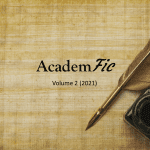I’ve been listening to the audiobook of Esau McCaulley’s Reading While Black. In it he offers a wonderful discussion of Psalm 137, musical settings of which I have mentioned here before. After helpfully categorizing the demand for mirth from those one has exiled and imprisoned, whose children and relatives one has murdered, as “psychological warfare,” McCaulley presents the presence of Psalm 137 in the canon as authorizing the oppressed to express their rage and hand it to God. It doesn’t authorize taking vengeance into one’s own hands, but it also ought to silence those who, from a place of privilege, try to silence the uncomfortable expressions of frustration and anger from those disadvantaged and oppressed by the status quo. This should be connected with the recent white reactions to the “Prayer of a Weary Black Woman” by Dr. Chanequa Walker-Barnes. What she wrote there is far less harsh than wishing that white Americans be enslaved, exiled, lynched, slurred, beaten, and mistreated. White American Christians are given in this prayer a toned-down version of what it might be like to hear Psalm 137 as a Babylonian. rather than to sing it as an Israelite. Most couldn’t handle it, objecting strongly that it was inappropriate to express frustration in that way. The presence of Psalm 137 in the Bible should offer a clear rebuke. The Bible authorizes the expression of rage in prayer. It does not authorize the oppressors or their descendants to use piety as a basis for demanding that their victims not express their rage to God. Psalm 137 is part of the canon. The Babylonian response is not.
New to YouTube: “This is a recording of “Opera and Christianity: Grace, Faith, and Miracles,” the 2021 Spring Theology Lecture at Saint Thomas Church Fifth Avenue. The lecture was delivered on April 20, 2021, by Ms. Desirée Mays, a renowned lecturer with the Metropolitan Opera, the Santa Fe Opera, and other opera companies across the country. The operas that were discussed included Messiaen’s Saint François d’Assise, Pizzetti’s Murder in the Cathedral, Massenet’s Thaïs, Puccini’s Suor Angelica, and Poulenc’s Dialogues des Carmélites. The lecture was hosted by The Rev. Dr. Patrick Cheng, the Theologian in Residence at Saint Thomas Church.”
John Rutter blogged about the music at the funeral for Prince Philip:
Here’s a Psalm setting I only just discovered recently, by Uroš Krek:
Also on the Bible and music:
Bob MacDonald on Makarisms (Beatitudes) in Psalms, Psalms 1-3 (plus a separate post on “you are my son” in Psalm 2), Psalm 11, Psalm 12, Psalm 82, Psalm 83, Psalm 98, Psalm 99, and Psalms 2 and 149 (as well as Jonah and climate with a hint of music, and Lamentations 5)
Commentary on Psalm 46 and commentary on Psalm 47
Helen Leneman has a new book about musical explorations of the story of Judith
New book on music in ANE religions
Signal Musicians in Roman Legions
Kenneth Leighton’s Fantasy on an American Hymn Tune
Theodicy in visual art and music, in particular Handel
Longtime Indianapolis pianist helps preserve church hymns for future generations to enjoy
Black Like Jazz: Imagining a World Without Police
Joshua Albrecht, Kent State University – Music and the Language of Emotion
Hebrews set to music by Psallos:
https://www.thegospelcoalition.org/article/biblical-theology-set-music-hebrews-psallos/














